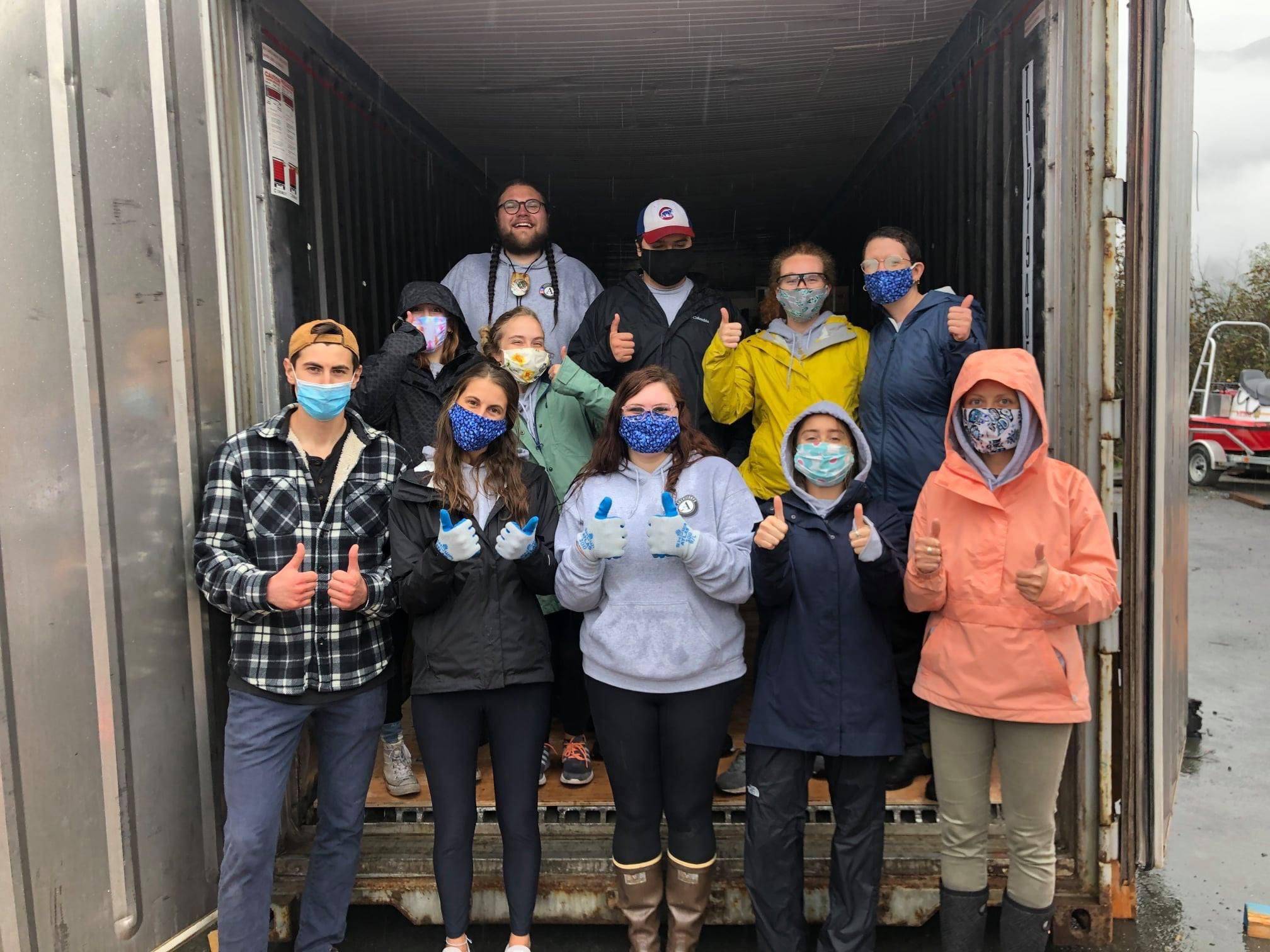Learning to read may seem like something to be taken for granted, but it’s one of the most foundational parts of success in the modern world.
And Juneau’s youth are having trouble with it.
“When we look at the literature, some of it is due to the time young kids are spending alone with devices,” said Ted Wilson, director of teaching and learning support for the Juneau School District, in a phone interview. “There’s less deliberate conversation.”
This lack of conversation at home, the speaking and listening, does not set students up for success on entering school. Fortunately, Juneau’s AmeriCorps program is doing what it can to help address that capability gap.
“I felt this was an area where AmeriCorps members could really have an impact because they could work with individual students one on one,” said Shari Paul, the director of the AmeriCorps program in the area. “If I got them into the schools they could work with teachers who needed that support for their students.”
Of the 13 AmeriCorps members currently operating in Juneau, six are tasked out to elementary schools or other early education programs. Members are operating at Gastineau Elementary, Riverbend Elementary, Glacier Valley Elementary, Harborview Elementary, Mendenhall River Community School, and the Little Eagles and Ravens Nest, as well as working with Central Council Tlingit and Haida Indian Tribes of Alaska’s Head Start program. The work has been going well, said Jordan Frodge, a member, who’s working with kids at both Little Eagles and Ravens and Head Start.
“It has been going all right. I think sometimes children are a lot more adaptable than we give them credit for. They are relatively focused, even being preschool kids,” Frodge said in a phone interview. “We operate in person at half capacity. Me and most of the people in my cohort serve as literary assistants. We pull them aside and do more one-on-one work. We read some stories, we sometimes do some activities based on the books.”
That one-on-one work is key, said Wilson. Small groups and being able to build connections means members are able to help children with the most to learn.
“We are focusing their efforts on literacy, so giving students more time to work with an adult, either straight up reading something or working on skills that have been identified to help the student progress,” Wilson said. “When we were in distance, their role was with students that were on their caseload to meet with them regular and help them online. Now that we’re in person, they’re another resource to keep the groups small so they can be intentional and individualized with the work that they’re doing.”
A term of service
The pandemic has been tough on the thirteen members, Paul said, but they’re are doing well.
“It’s challenging. I am so impressed with them. They haven’t had a lot of time with team building and getting together as a whole group. I haven’t been able to spend a lot of time except via zoom and short walks with them,” Paul said. “Part of the AmeriCorps experience is getting them involved in community events, but everything is shut down because of COVID. And of course the weather is horrible. They’ve adjusted to the challenges in our small communities.”
Part of the AmeriCorps experience is days of service. This year’s cohort has worked with Tlingit and Haida for each of those days so far.
“We previously worked with Tlingit and Haida on our 9/11 service day,” Frodge said. “We appreciated the tribal government being open to working with us directly and wanted to pursue something like that again.”
Being able to work with the kids and help out is great, said Erin Few, another AmeriCorps member, in a phone interview. Few and Frodge were friends and coworkers in the Peace Corps together in Namibia before the organization’s mass recall at the outset of the pandemic. Applying and being accepted to the AmeriCorps program in Juneau, the two now live together, serving to assist with different literacy programs.
“A good percentage of my members this year were Peace Corps. That says something for my group,” Paul said. “They were overseas and they loved it and they wanted to come back and continue to serve.”
This year’s cohort of members is roughly halfway through their term of service. Many are still hoping to enjoy a Juneau winter — sometime.
“Most of the members here right now will be leaving around July. We’re really excited for it to get a little colder and ice skate and ski some,” Frodge said. “We’re excited to take advantage of the Juneau winter in full capacity.”
• Contact reporter Michael S. Lockett at (757) 621-1197 or mlockett@juneauempire.com.

